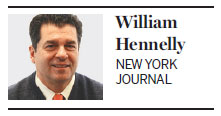Like the small-batch beer connoisseurs in the West, the Chinese are developing a palate for craft brews.
Rising incomes and a growing middle class in China are two reasons for heightened interest in craft beer, the US Department of Agriculture's Foreign Agricultural Service said in a report earlier this month. With those demographics comes an inroad for US craft brewers.
"A window of opportunity for US craft-beer exports to China has been opened, as the market of imported beers will soon enter a period of explosive expansion," the Feb 5 USDA report said.
Germany dominates China's imported beer market, with a 59 percent share, followed by Belgium with 7 percent, and the Netherlands, Mexico and France each with around 4 percent. The United States ranks sixth with 3.8 percent.
In 2013, China bought about 4,800 tons of US beer (craft and non-craft) worth $8.8 million, which reflected sales growth of more than 68 percent over 2012. The overall craft beer-export market is growing too, rising 49 percent to 282,526 barrels in 2013, according to the Brewers Association, a Boulder, Colorado, group that represents the craft beer industry.
China is the world's largest beer producer and consumer, but most of that brew is he mass-produced, thinner variety.

"What I know about China's beer market is that it's exactly the kind of market craft beer targets: It drinks almost as much beer [as] the US, Brazil and Russia combined, but it drinks less than half as much per capita as any of those countries," Jason Notte, beer industry columnist for MarketWatch, told China Daily.
"It's also dominated by light lager brands like Snow, Yanjing and Tsingtao, which makes it fertile ground for US craft beer," Notte added. "Smaller US brewers built their entire movement on a broad array of beer styles and have used it to chip away at sales of light lager, including Budweiser and Coors Light.
"In their view, a Chinese beer market filled with light lager is just waiting for them to do what they did to the big brewers back home," Notte said.
Euromonitor International, a London-based research company, saidin an August 2014 report that ChinaResources Enterprises, which makes Snow beer, has a 21.7 percentmarket share, followed by Tsingtao Brewery Co with 15.7 percent. ChinaResources has a 51 percent share in CR Snow, the largest brewing company inChina, in a joint venture with SAB Miller.
Tsingtao had been the best-selling beer inChinafor 11 consecutive years but was overtaken bySnow, the top-selling beerin the worldby volume. Beijing Yanjing Brewery is third with 11.7 percent. Anheuser-Busch InBev, based in Belgium, the largest brewerin the world and the maker of Budweiser, is fourth with 11.4 percent, followed by Henan Jinxing Brewery with 3.4 percent, Euromonitor said. Denmark's Carlsberg, sixth with 2.6 percent, said it was seeing more demand in China for its premium brands.
"For an entire society weaned on [industrial lagers like] Yanjing and Tsingtao, it's a huge challenge to tip the scales of this kind of market domination," Jacob Wickham, president of the Beijing Homebrewing Society, told China Daily in 2013. "Education and appreciation for real beer is necessary to help fuel China's craft-beer revolution."
China has a growing craft-beer culture, particularly in Shanghai, with its large contingent of Western expats. The Boxing Cat Brewery was a craft-brew pioneer in Shanghai in 2008, and now has two locations.
China Daily found several craft-beer companies in a May 2013 story: Chengdu Beer and Harvest Beer in Chengdu; Strong Ale Works in Qingdao; The Old Brewery in Yangzhou and Nanjing Craft Brewing Co in Nanjing. Shanghai and Beijing had several craft breweries up and running that year.
TheShanghai International Beer Fest is a burgeoning event that drew 40,000 beer lovers last fall.
Gao Meng, 26, sampled a lager fromNew York's Brooklyn Brewery.
"I really don't like normal beer," she told Public Radio International, "but this one is different. I like this taste.It has very heavy, very good taste."
The Shanghai fest featured brews with Chinese ingredients, such as Sichuan peppercorns, Tibetan barley and purple rice. Some were flavored with guihua blossoms or jasmine tea. A roasted sweet potato beer also made an appearance.
The fifth edition of the Shanghai festival - which will feature 250 beers from 24 countries -will be held from Oct 21-30. The festival's website touts that it's "only 50 RMB!!!" to enter, and that includes one free beer.
The China Food & Drinks Fair (Tang Jiu Hui) will be held from March 26-29 in Chengdu. The number of exhibitors for imported beers is growing.
As the USDA sees it: "The US craft beer industry needs a more aggressive market promotional plan to establish a positive brand image and convey product know-how to beer trade, bar/restaurant professionals and beer consumers in China."
Contact the writer at [email protected]